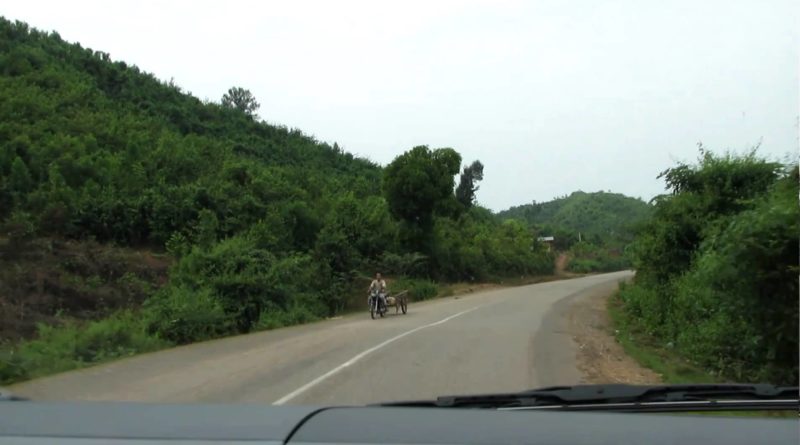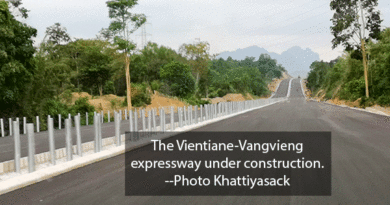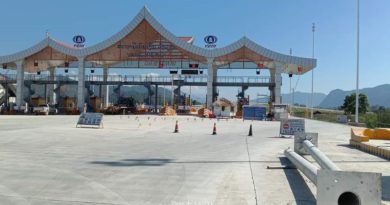Govt Approves Vientiane-Vangvieng Expressway Corridor, Legislation
Source: Vientiane Times
The government has approved the Vientiane-Vangvieng expressway’s corridor and legislation in a move to boost socio-economic development.
The approval was made at the monthly cabinet meeting for May, chaired by Prime Minister Thongloun Sisoulith and attended by the cabinet members.
The 113.7-km corridor is part of the envisioned Vientiane-Boten expressway that the government wants to develop.
If realised, the Vientiane-Boten expressway will link Vientiane with the northern province of LuangNamtha, which shares a border with China.
The government spokesman Dr Chaleun Yiapaoher told a press conference shortly after the two-day meeting that the expressway would be developed in parallel with the existing 13 North Road and the Laos-China railway project.
But the expressway is intended to be a significant shortcut with a number of tunnels and bridges expected to be built through mountainous terrain in the northern region of Laos.
The private sector would be promoted to develop the project in the form of the Build-Operate-Transfer (BOT) model, the spokesman said.
The 113.7-km corridor links Sikeuth village in Naxaithong district, Vientiane with Vientiane province’s Vangvieng district – one of Laos’ well-known tourist destinations.
DrChaleun said the Vientiane-Vangvieng expressway was the first section of the Vientiane-Boten expressway the government wanted to develop.
“The first step is to develop this first section,” he told the press conference.
He added the first section was estimated to cost $US1.4 billion and would be developed to meet Asean road standards.
Later, the government will proceed to the next step to realise the second section linking Vangvieng with northern LuangPrabang province with the third section linking LuangPrabang with LuangNamtha’sBoten.
The approved 113.7-km corridor was the best choice among the three corridor options presented to the cabinet meeting, he added.
The meeting told the Ministry of Public Works and Transport to supervise the company carrying out the feasibility study to work out details of the Vientiane-Vangvieng expressway project including design and to submit the final details to the government for consideration and approval.
BOT is a form of project financing, wherein a private entity receives a concession from the private or public sector to finance, design, construct, and operate the facility described in the concession contract.
This enables the project proponent to recover its investment, operating and maintenance costs.
In addition to the expressway project, the meeting approved in principle the Presidential Decree on Service Fees and entrusted the relevant sectors to revise the document in accordance with the comments made by the meeting.
The cabinet also approved in principle the five-year plan for 2016-2020, 10-year strategy until 2025 and 15-year vision until 2030 on blood donation affairs in a move to develop the sector and increase blood donations to meet growing need.
Other approved documents were the Draft Prime Ministerial Decree on Training and Development of Civil Servants, Draft Prime Ministerial Decree on Assessment of Civil Servants’ Performance as well as Draft Prime Ministerial Decree on Petroleum Enterprises among others.
The relevant ministries were asked to revise the approved documents in accordance with recommendations made by the cabinet members.
The meeting also discussed a Prime Ministerial Decree on the Labour Skill Training Fund.




